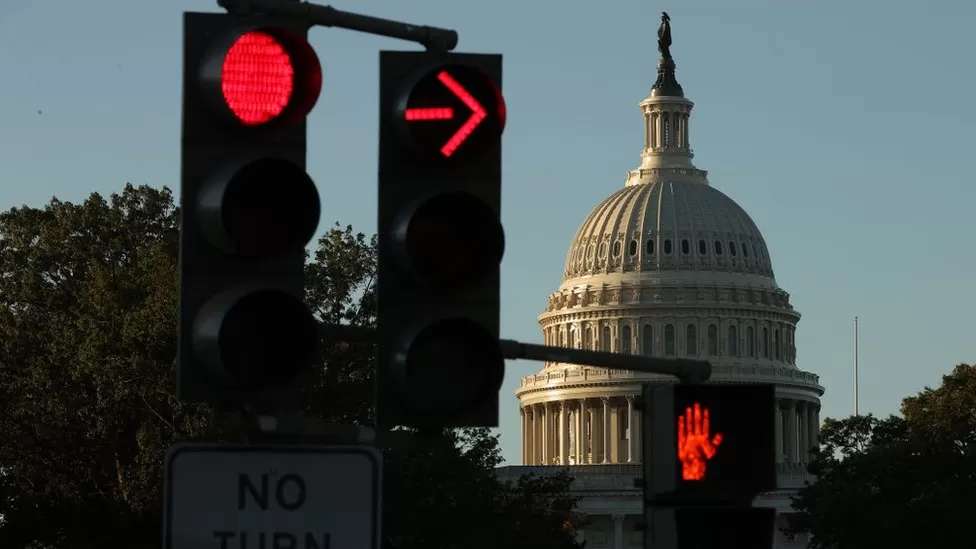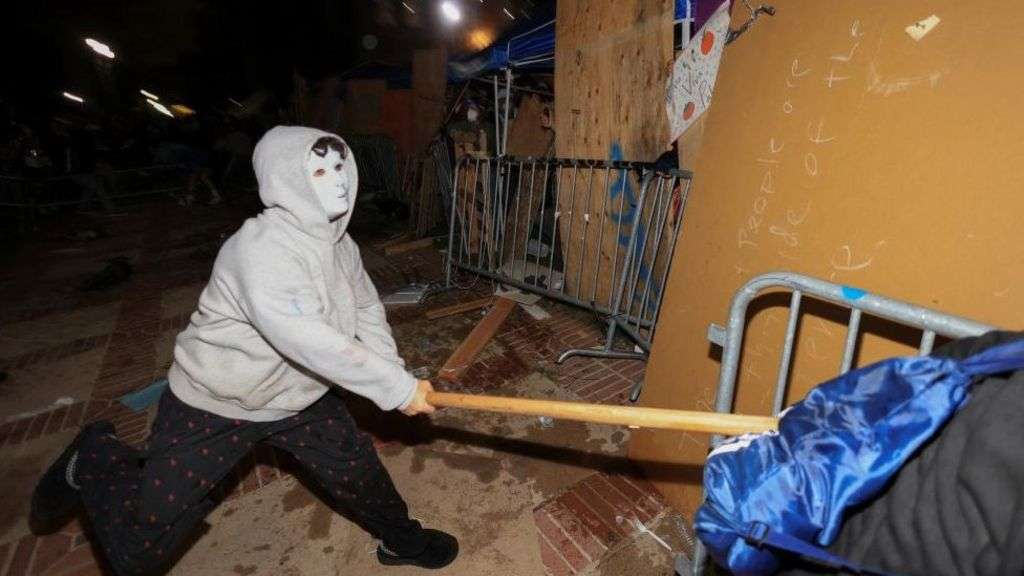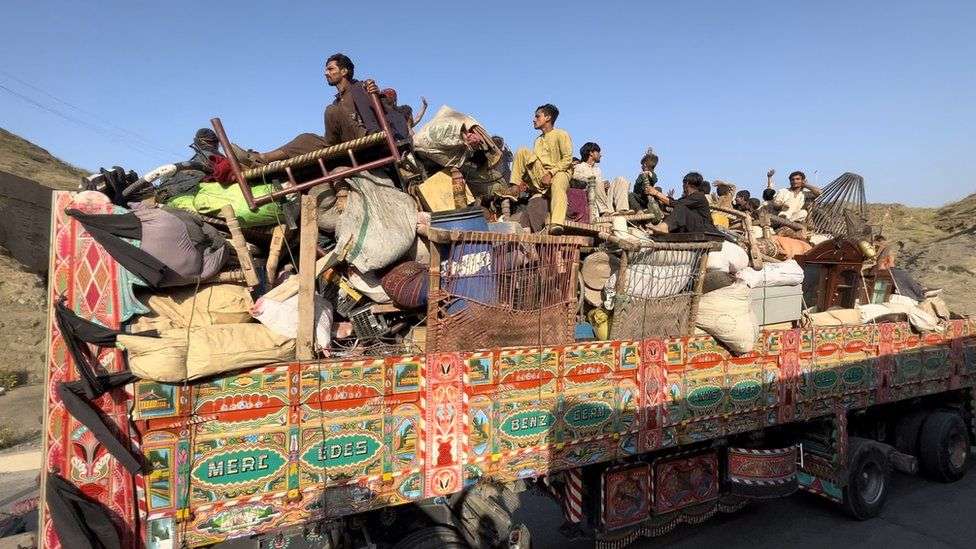The US government is on the brink of another shutdown with Congress poised to miss a Saturday midnight deadline to fund federal agencies.
The fourth shutdown to occur over the past decade, it could significantly affect everything from air travel to national parks and marriage licenses.
Most government employees will be furloughed without pay, and crucial nutrition programmes will be halted.
It follows a hard-right revolt in the US House of Representatives.
Republicans control the House by a slim majority, while Democrats hold the Senate by a single seat.
That means spending bills to keep the government open require buy-in from both parties in order to advance through both chambers to President Joe Biden's desk.
But a rebel faction of right-wing lawmakers has held up negotiations in the House, the lower congressional chamber, with a demand for significant cuts in spending, including a call for no more US funding of the war in Ukraine.
Receiving vocal support online from former President Donald Trump, the hard-liners have tanked efforts by Speaker Kevin McCarthy to shepherd legislation needed to break the impasse through the House.
While the Speaker could ostensibly turn to Democrats for the votes he would need to approve a spending measure, it is a move that would likely trigger an effort by the rebel faction to oust him from his plum leadership post.
Kevin McCarthy's job on the line as shutdown looms
Mr McCarthy has also refused to take up a short-term funding bill making its way through the Senate. The bill, which includes $6bn (£4.9bn) for Ukraine and $6bn for disaster aid, is a last-ditch effort to avert a lengthy shutdown and appears to have strong bipartisan support in the upper chamber.
On Friday, House Republicans' short-term funding measure, which included strict border policies championed by the hardliners, was rejected by as many as 21 members of the party and failed to pass.
In a closed-door meeting, Mr McCarthy said that Republicans would have to opt for the House bill or the Senate's version, or risk being blamed for a shutdown.
But the rebel lawmakers asserted they would not budge for anything less than a long-term spending bill with their priorities addressed.
"This take it or leave it or I'll blame you won't work on us," South Carolina Congresswoman Nancy Mace, a moderate who voted against the House bill on Friday, wrote on X.
"I'm in this for the long run and have no problem taking on DC to do it."
Republican Congressman Matt Gaetz (centre) has publicly threatened to oust Kevin McCarthy (right) as Speaker
Chuck Schumer, the Senate Majority Leader, slammed Mr McCarthy for bringing up "truly radical" proposal that could not make it through both chambers.
"The Speaker needs to abandon his doomed mission of trying to please [Republican] extremists," he said.
The White House backed Mr Schumer's calls for the House to get behind his spending bill.
"The path forward to fund the government has been laid out by the Senate with bipartisan support - House Republicans just need to take it," press secretary Karine Jean-Pierre wrote in a statement on Friday.
Treasury Secretary Janet Yellen said: "The failure of House Republicans to act responsibly would hurt American families and cause economic headwinds that could undermine the progress we're making."
Ms Yellen warned that "key government functions", including loans to farmers and small businesses, food and workplace safety inspections, and major infrastructure improvements would all be affected.
Shutdowns take place when Congress is unable to approve the roughly 30% of the federal budget it must approve before the start of each fiscal year on 1 October.
This means that, on Monday, hundreds of thousands of federal workers except those deemed "essential" will be at home without pay. Many of these employees live paycheque to paycheque, according to the American Federation of Government Employees.
More than 1.4 million active-duty members of the military and tens of thousands of air traffic controllers will be among those working, without pay.
It is a troubling development for any federal workers holding student loan debt. Loan repayments for over 40 million people will restart on Sunday after being paused since the start of the pandemic.
Federal workers stood in lines for food during the 2018-19 government shutdown, which lasted 34 days
The shutdown will also have an immediate impact on the Special Supplemental Nutrition Program for Women, Infants and Childrn (WIC), which provides grocery assistance to seven million pregnant women and new mothers.
A prolonged shutdown could also affect the Supplemental Nutrition Assistance Program (SNAP), a grocery benefit known as "food stamps" that serves 40 million low-income Americans, and hinder the implementation of a new programme to serve free breakfast and lunch to students in high-need school districts.
Museums, national parks, research facilities and communities health centres with federal government oversight or funding are likely to suspend operations for the period of the shutdown.
Additionally, the government agency at the helm of relief and recovery from natural disasters is currently scrambling to conserve cash in the event a shutdown collides with an above-normal Atlantic hurricane season.
Budget disputes that cause this kind of disruption do not occur anywhere else in the world and has been criticised as an example of Washington's growing dysfunction and partisan divides.
The last government shutdown, under Mr Trump in 2019, lasted a record 34 days.
It erased $11bn in economic output, according to the Congressional Budget Office, and federal workers were seen standing in line at food banks.








